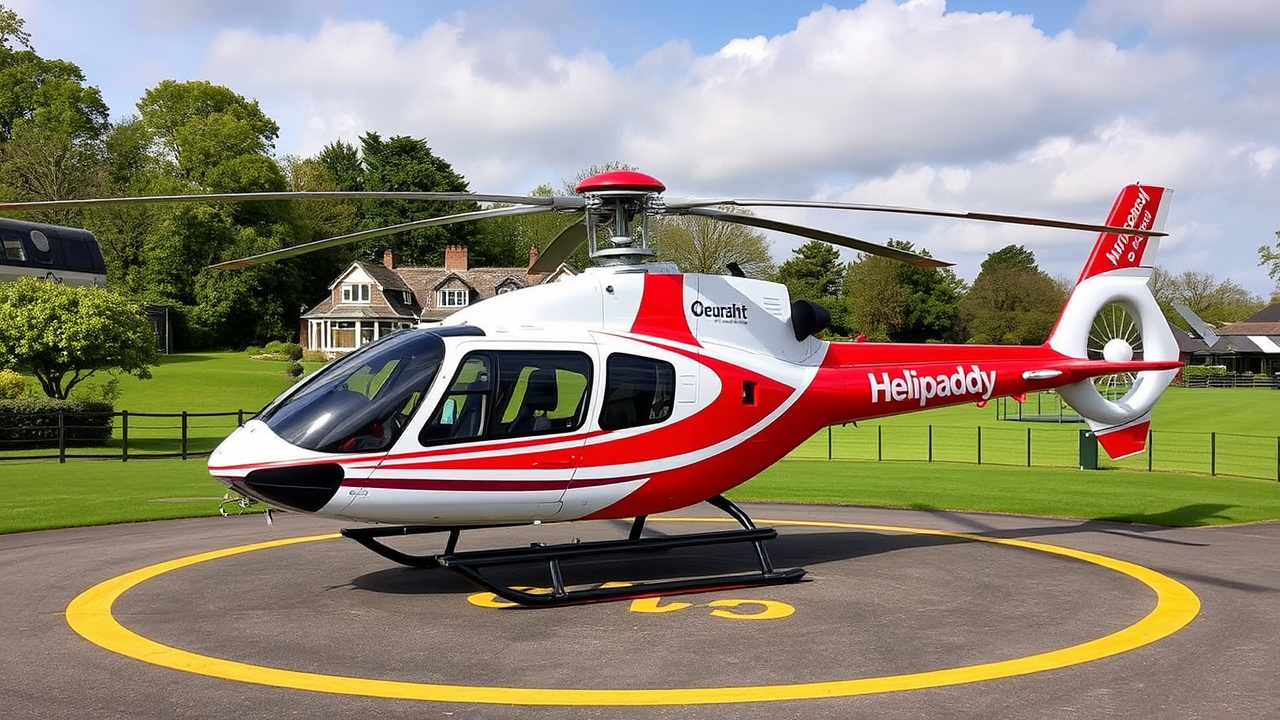Certificate of Agreement for UK landing sites

Do you want international arrivals/departures from your landing site?
As of January 2024, helicopter landing sites require a CoA with Border Force to allow international movements.
A Border Force Certificate of Agreement is a formal document issued by the UK Border Force that permits the designated site to be used for international flights. This certificate is crucial for any helipad that intends to serve as a point of entry or exit from the United Kingdom for passengers or goods.
The certification process involves an assessment of the helipad and its facilities to ensure they meet the specific security and immigration control standards as required by the UK Border Force. This encompasses a range of measures, including the ability to secure the site, handle passengers’ documentation checks, and carry out customs procedures if necessary.
To obtain a Certificate of Agreement, the operator of the helipad must apply to the Border Force and demonstrate that their operations are in full compliance with border security regulations.
How do I apply for my landing site?
If you are not a customs and excise airport and wish to apply for approval under section 20B of CEMA you are required to submit the following information to [email protected].
Operator information
1. Full name of the Registered Entity applying for approval. Please note this must be the entity that is in control of the helipad as it will be responsible for meeting the terms and conditions of the approval.
2. Applicants Companies House Registration number [if held]
3. Applicants VAT Registration number [if held]
4. The Applicants EORI number. Please note that this is a mandatory requirement, and you cannot apply for approval if you do not have one. An EORI number is allocated by HMRC and information on applying for an EORI can be found here www.gov.uk/eori
Aerodrome information
5. The full postal address of the helipad
6. A general outline of the type of flights using the helipad
7. The approximate number and origin of flights per annum i.e., UK domestic or Rest of World flights (including the EU and the Channel Islands).
8. Whether the flights handled carry anything other than passengers e.g., freight, firearms, pets etc and if yes what do they carry and is this on domestic or international flights
9. Details of all third-party operators at the helipad and the nature of their business (the import/export of aircraft, aircraft flying in from Rest of World countries for maintenance, aircraft flying solely for refuelling operations etc).
10. A plan of the helipad to be signed and dated including the full address.
Facilities available to Border Force
11. Can you provide the following :
- Parking spaces for official Border Force vehicles
- Space for the display of customs allowances notices, Cash Declaration posters etc.
- Facilities for Border Force staff to conduct baggage examinations (e.g., private room equipped with table)
- Internet access
Record keeping
12. Do you have a record management system which is capable of:
- recording details of any aircraft landing or taking off from the helipad including:
- the journey and route
- the date and time of arrival and departure,
- the type and registration of the aircraft
14. Can you store those details for 4 years.
Please note that if any user of the aerodrome is involved in any activity that requires the submission of a customs declaration e.g., the permanent or temporary import of aircraft, the movement of international cargo etc, additional information will be requested on receipt of the application.
If your helipad does not currently hold a regulated aerodrome approval it cannot operate international flights until it obtains a regulated aerodrome approval.
If you have a need to handle an international arrival or departure whilst you apply for this approval, you need to use an alternative location that has the required customs authorisation in place. Details of these can be found in Annex E of this link which is in the process of being updated.
How does an approval look?
Covering letter
Further to your application dated 13th May XXXX and as permitted by Section 21 of the Customs and Excise Management Act 1979, the Secretary of State and the Director of Border Revenue for the Border Force hereby permits XXXX Helipad to handle aircraft arriving from or departing for a place outside of the customs and fiscal territory of the United Kingdom subject to the requirements detailed in the enclosed Customs Certificate of Agreement. The agreement is valid for a 5 year period subject to the Secretary of State and the Director of Border Revenue right to revisit the terms and conditions attached to such permission as set out in the Certificate of Agreement at any time.
Certificate
How helipads fit into HMRC’s designation of aerodromes
UK aerodromes are thought of by HMRC as falling into four main categories:
- National Designated Aerodromes: Aerodromes that serve as important hubs for domestic and international air travel, providing a wide range of facilities and services for passengers, cargo, and general aviation.
- Regional Designated Aerodromes: Aerodromes that provide essential connectivity and services for a specific region within the UK, often serving smaller cities and towns.
- Local Designated Aerodromes: Aerodromes that provide local connectivity and services, primarily catering to general aviation, flight training, and leisure activities.
- Non-designated C&E aerodromes (and helipads): Aerodromes (and helipads) that handle a limited range of flights subject to a Certificate of Agreement (CoA) with UK Customs Authorities.
Designated Aerodromes can handle flights to and from any location, while Non-Designated Customs and Excise Aerodromes handle a limited range of flights subject to a Certificate of Agreement (CoA) with UK Customs Authorities.

See also our article on Consultation – Advanced Information for International Flights.



This is good info !!
They are nuts !